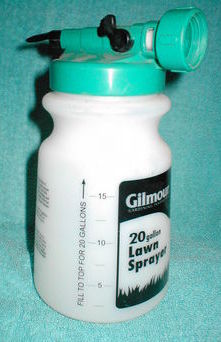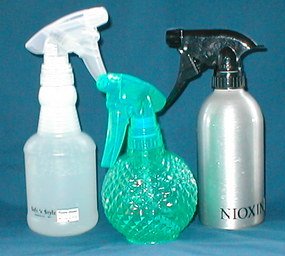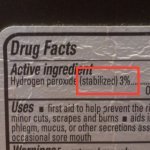Hydrogen Peroxide Dilution Chart
Mixing 35% food grade hydrogen peroxide to get 3% hydrogen peroxide
To make a gallon of 3% peroxide: In a clean gallon container, combine 1 and ¼ cups of 35% food grade hydrogen peroxide with 14 and ¾ cups of water.
To make 3% hydrogen peroxide from 35% hydrogen peroxide, the general mixing guideline is: 1 part 35% hydrogen peroxide plus 11 parts water = 3% hydrogen peroxide. You can use this guideline with any quantity you need to mix.
Peroxide dilution chart for mixing 35% hydrogen peroxide with water to get 3% hydrogen peroxide
Here’s the same thing I just said, but in the form of a hydrogen peroxide dilution chart:
| USE THIS AMOUNT OF 35% HYDROGEN PEROXIDE | AND THIS AMOUNT OF WATER* | TO MAKE THIS AMOUNT OF 3% HYDROGEN PEROXIDE |
| 1 part | 11 parts | 12 parts |
| 1 and 1/4 cups | 14 and 3/4 cups | 1 gallon (16 cups) |
| 1 and 1/4 tablespoons | 3/4 cups + 2 and 3/4 tablespoons | 1 cup (16 tablespoons) |
| 1/4 cup + 1 tablespoon | 3 and 1/2 cups + 3 tablespoons | 1 quart (4 cups) |
I can’t think of a reason why you’d want to mix more than a gallon of 3% peroxide, but perhaps I’m missing something? (Please write and let me know if you mix larger quantities, I’d be curious to know what you use the large amount of 3% for. Seems to me it would be easier to use 35% for anything that needs that much???)
More “how-to” details, and how to make it easier to do…..
I use an empty gallon apple juice bottle which I’ve had for years. (It is glass. I consider glass to be acceptable for storing 3% hydrogen peroxide but NOT for 35%.)
To make measuring and mixing a gallon of 3% peroxide easier, do this:
- Make a gallon of 3% hydrogen peroxide, as described in the peroxide dilution chart, above, by mixing 1 and 1/4 cups of 35% food grade hydrogen peroxide with 14 and 3/4 cups of water. Measure it out.
- Use a permanent marker to make a mark on the outside of the bottle, where the level of the gallon of liquid fills the bottle up to.
- From here on out, you can make 3% hydrogen peroxide every time this bottle is empty like this: measure 1 and 1/4 cups of 35% hydrogen peroxide, and pour it into the empty bottle. Then add enough water to fill up the bottle, up to the line.
This eliminates having to measure and count out 14 and ¾ cups of water each time!
Please Always Label the % on All Containers of Peroxide
When you make 3% hydrogen peroxide from 35%, PLEASE PLEASE be sure to label every container with so you know what's what.
The label should say HYDROGEN PEROXIDE.
And the concentration: like 3% or 1% or 35%.
This is super important. It can be DANGEROUS if you don't know what concentration you are using. So please please do it.
ALWAYS label all containers clearly, including the concentration (also called percentage or strength).
| You’ll find more hydrogen peroxide dilution charts here: You’ll find more about concentrations of hydrogen peroxide and dilutions here: |
* What kind of WATER?
In the hydrogen peroxide dilution chart, above, I just say “water”. But what kind of water?
That will depend on what you are planning to use the peroxide for. For most purposes, tap water will work.
Here is the exception: If you plan to use the peroxide as an oxygen supplement – to be ingested by anyone (including animals) – then you should consider using distilled water, or filtered water, if at all possible.
Any metals in water will combine with hydrogen peroxide. I’ve read that this is bad stuff to ingest. I’d like to know a lot more than I do about why, and what the level of risk is. I can’t add a lot to this, other than to say that I’ve read that this is risky. How risky I don’t know. But it does make some sense: peroxide is an oxidant. Oxidizing metal creates rust. Drinking rust particles doesn’t seem like a good idea.
I’ve also read that it is bad to ingest peroxide in combination with iron supplements. The reason is the same: iron is a metal.
If you plan to ingest peroxide, you can consider this.
Return from hydrogen peroxide dilution chart to the home page for the site....
Subscribe to Hydrogen Peroxide Explorers' Newsletter
Our newsletter will keep you up to date on new pages added, plus some Adventures you can try at home:
No worries! Your email will be used ONLY to send you newsletters.
(Gallon):
(5 pounds):
For some links, I receive ad commissions, at no cost to you. More info here.
Site Search:
Subscribe to our newsletter (free):
Note: Products shown are sold by Amazon. This site does NOT sell hydrogen peroxide.
Do you like this site?

Gardening: attach sprayer to garden hose; use to dilute peroxide and spray on the garden

Spray bottles for peroxide




